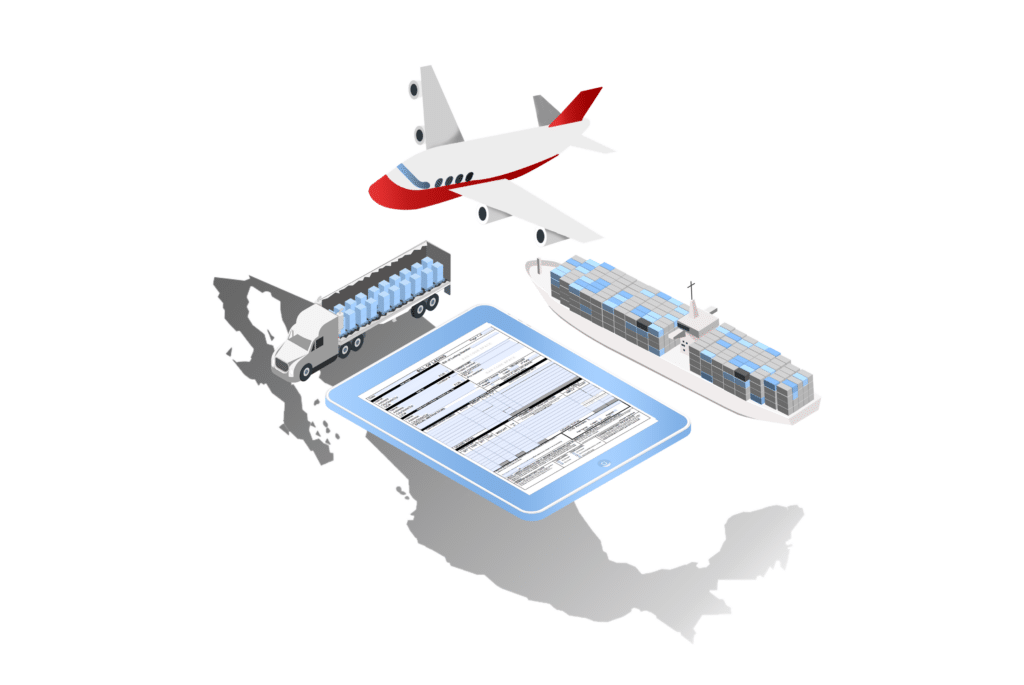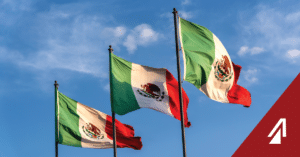In May of 2021, the Mexican Tax Administration Service (SAT in Spanish) issued a new directive for all Mexican imports and exports called the “Bill of Lading Complement” or “Complemento Carte Porte” – Carte Porte for short. This directive is strategically designed to combat growing smuggling and lost tax revenue concerns within the Mexican logistics market. SAT estimated that the nation loses as much as $7 billion in tax revenue from contraband each year and is cracking down on violators with the new Carte Porte measures.
How Does It Work?
The new Carter Porte measures are a supplemented section to electronic bills of lading. Each portion of this section requires detailed information from each member of the supply chain and may require information such as:
- Goods that will be moved through Mexican territory
- Shipper/receiver information
- Specific information about the shipper/receiver’s locations
- Information the means and mode of transportation
- Driver information for ground transportation
- Etc.
Some portions of this request for information have as many as 160 questions for detailed shipment analysis. This process works by shippers, logistics providers, suppliers, and others to fill out the attachment and supply it with the traditional freight bill, and it applies to all modes of transportation within Mexican territory.
Failure to comply with the new directive will trigger fines – as much as $4500 per shipment, and/or the Mexican companies shut down for anywhere from 3-15 business days. This means significant losses in productivity and revenue.
“We are convinced of how important it is to fight the smuggling that affects the industry so much, and how essential it is to strengthen formal trade in our country,” José Abugaber, president of the Confederation of Industrial Chambers of Mexico (CONCAMIN), said during a recent video posted on Facebook. “We have full confidence that the private sector can participate in an important way in the necessary and urgent training and dissemination of [Carta Porte] to a large percentage of service providers and users of all modes of transportation, including SMEs, which require regulatory and technological preparation.”
The full enforcement for this new directive began on January 1, 2022.
How Does It Shift the Conversation From Shipment Cost to Shipment Spend?
So, why should this create a fundamental shift in how freight providers for Mexican imports and exports are selected? It matters because of the significant cost of non-compliance. With added fines or shutdowns, the price of an individual shipment will skyrocket. A current truckload shipment from Indianapolis, IN to Monterrey MX, might cost $3000-5000, but with a $4500 fine for missing information, the rate is nearly doubled. Not to mention shut down fees, lost revenue, and lost opportunity. Customers cannot afford long to hire logistics providers or freight services that do not meet the crucial new requirement standards.
The lowest cost carrier cannot be entrusted with a shipment if they are not capable of meeting the technology, visibility, or reporting requirements necessary to pass customs in Mexico. Also, many customers do not have the staffing or resources to manage the increase in data needed to ship to and from Mexico. So, customers will need to evaluate the overall spend of a shipment, rather than just the cost of an individual truckload, cargo container, or airplane. That means customer supply chain managers should be looking to partner with logistics providers, carriers, or 3PLs (like ProTrans) to have the necessary resources to meet these strict standards and ensure compliance.
What to Do as a US Importer/Exporter?
Since the directive is now in full effect, the US Department of Commerce and International Trade Commission recommend that US importers and exporters be in contact with their Mexican clients and partners to be aware of the legal, tax, and customs implications of their shipments.
A higher-level recommendation is to find a logistics partner, like ProTrans, who is capable of and has already met the standards needed to comply with the Carte Porte supplement. We offer in-depth, practical knowledge of the new requirements, the technology to easily adapt bills of lading with the new supplement and capture the necessary data, and the visibility and reporting necessary to follow a shipment door-to-door and ensure compliance.
So, with the implementation of the Carte Porte requirements, more information is needed to provide the Mexican government. Failure to supply this information has heavy consequences. As a result, companies will shift the conversation from individual shipment costs to overall supply chain spend.



